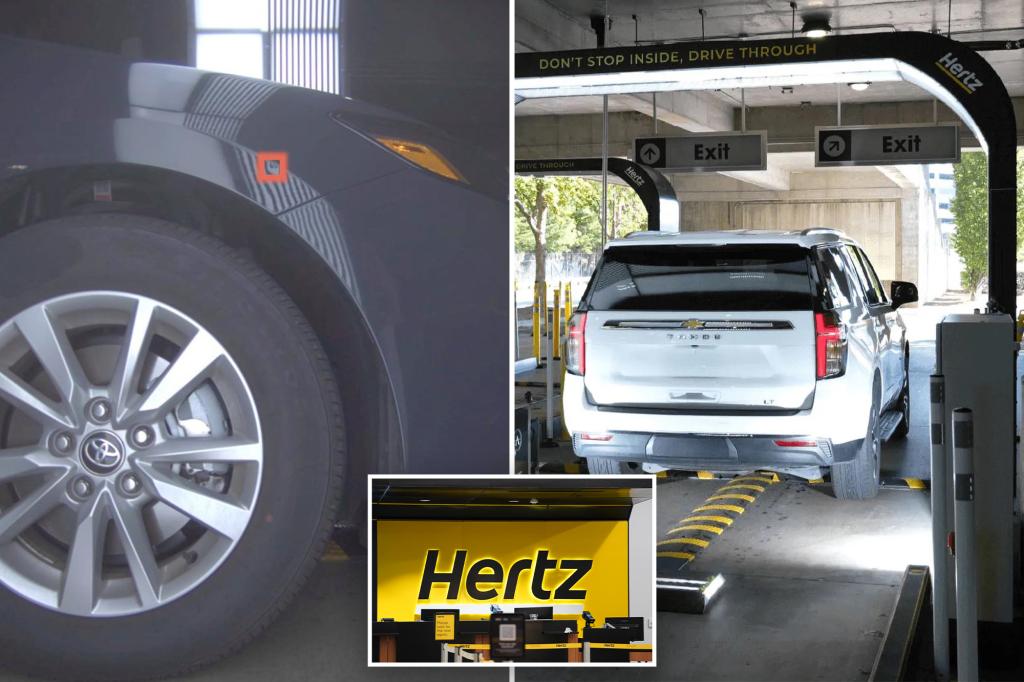
Hertz customers have expressed outrage after being charged hundreds of dollars for minor vehicle damages detected by the company’s new artificial intelligence-powered scanners. These charges, often for small scrapes and dents, have left customers with limited options to dispute them.
One such customer, Patrick, rented a Volkswagen from Thrifty, a Hertz-owned company, at the Atlanta airport location—the first U.S. store to implement UVeye technology. He reported receiving a bill for $440 just minutes after returning the car. The fee included $250 for repair, $125 for processing, and $65 for administration.
Patrick shared his experience with The Drive, explaining that he was offered a discount of $52 if he paid within two days or $32.50 if he paid within a week. Despite the offer, Patrick decided not to pay immediately, stating,
“Saving $30 to accept responsibility is not worth it.”
AI Technology and Customer Service Challenges
The introduction of UVeye’s AI-powered scanners marks a significant shift in how Hertz manages vehicle returns. Customers can view photographic evidence of the damage via Hertz’s web app, but resolving disputes has proven difficult. Patrick found the process of contacting a live customer service representative daunting, with options limited to a chatbot that can flag issues for review and email support that may take up to 10 days to respond.
Another customer, who shared their experience on Reddit under the username professor_pimpcain, encountered similar issues. They were automatically billed $195 for a minor ding and expressed frustration over the lack of human interaction, stating,
“I will no longer be using Hertz. Reached out to customer service and they said they stand by the AI.”
Transparency and Revenue Concerns
Many customers have criticized Hertz for a lack of transparency in how fees are calculated. While the company claims the processing fee covers the cost of detecting and estimating damage and the administrative fee covers the costs associated with processing claims, these explanations have left customers dissatisfied.
Hertz defended its system in a statement to The Post, asserting,
“The vast majority of rentals are incident-free. When damage does occur, our goal is to enhance the rental experience by bringing greater transparency, precision, and speed to the process.”
However, some customers argue that the AI system seems more focused on maximizing revenue than fairness, with instant fee generation and short discount windows adding pressure rather than transparency.
Expansion and Industry Context
Earlier this year, Hertz announced its partnership with UVeye, an Israel-based firm specializing in rapid, automated car inspections. Dubbed as an “MRI for vehicles,” these AI-powered scanners perform full-body vehicle scans in seconds, detecting damage before and after rentals. By the end of the year, Hertz plans to have over 100 of these scanners in operation at U.S. airport locations.
While Hertz is the first major rental company to extensively use this technology, UVeye’s systems are already established in other automotive sectors, serving clients such as General Motors, Hyundai, Amazon, and CarMax. The technology is used in hundreds of dealerships, fleet locations, and vehicle auctions worldwide.
UVeye is reportedly in discussions with other rental agencies, indicating that broader adoption of this technology may be imminent.
Historical Challenges and Future Implications
This controversy is not the first for Hertz. The company has previously faced criticism for billing electric vehicle renters for gasoline due to a systems error and charging one customer $10,000 for mileage on an “unlimited-mile” rental. In 2022, five customers sued Hertz after being wrongfully arrested for allegedly stealing cars they had returned.
The Post has reached out to UVeye for comment on the current situation. As Hertz continues to roll out this technology, the company may need to address customer concerns more effectively to maintain trust and transparency in its rental processes.






